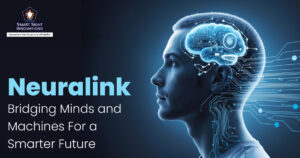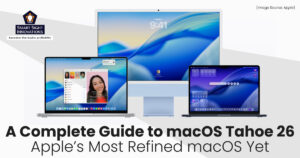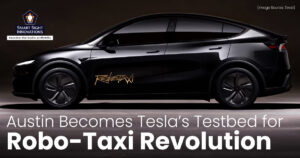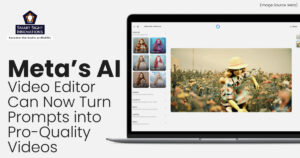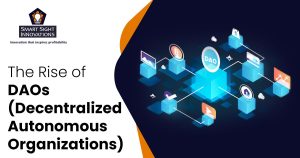 Smart contracts and blockchain technology operate as programs for decentralization and disengagement. These new technologies provide a foundation for trustworthy social and economic interactions while lowering transaction costs and agency expenses. They have transformed crowdfunding and are creating new business models for decentralized platforms.
Smart contracts and blockchain technology operate as programs for decentralization and disengagement. These new technologies provide a foundation for trustworthy social and economic interactions while lowering transaction costs and agency expenses. They have transformed crowdfunding and are creating new business models for decentralized platforms.
Decentralized autonomous organizations are a recent concept that have the potential to significantly change organizing and governance. It could bring in a new era of organizational dynamics by displacing structured organizations with democratic and distributed ones.
The growth of decentralized autonomous organizations is a broader movement in the technological sector towards decentralization, the shift from Web2 to Web3 and resistance to centralized platforms that operate as data aggregators and govern users.
What Are DAOs?
A decentralized autonomous organization, commonly abbreviated as DAO, is a novel organizational structure that operates without a central governing authority. It leverages blockchain technology and smart contracts to enable decision-making and management processes to be carried out through a distributed network of participants.
The concept of DAOs aims to create a new paradigm for organizing and coordinating activities in a decentralized manner.
At its core, a DAO is a self-executing entity governed by predefined rules encoded in smart contracts. These smart contracts are computer programs that autonomously execute actions when certain conditions are met.
DAOs are typically built on blockchain platforms, which provide the necessary transparency, security, and immutability required for their operation. Participants in a DAO can propose and vote on decisions, typically related to the allocation of resources, project funding, or changes to the organization’s rules.
Voting power is often determined by the number of tokens or shares held by each participant. Proposals that meet predefined criteria are automatically executed by the smart contracts, ensuring that the organization operates in accordance with its established protocols.
The concept of DAOs introduces a level of trustlessness, as the execution of actions is based on code rather than intermediaries. This minimizes the risk of corruption, central points of failure, and human bias that can be present in traditional organizations.
Additionally, DAOs can facilitate collaboration among participants from diverse geographical locations without the need for a physical presence or intermediaries.
DAOs, while holding immense potential, also come with challenges. The reliance on code can lead to unintended consequences, security vulnerabilities, and disputes that might be difficult to resolve. Moreover, decision-making in DAOs can sometimes be slow and cumbersome due to the need for consensus among participants.
Its ultimate goal is to be decentralized and operate autonomously without the need for supervision or human intervention. It gives people a more transparent and democratic way of cooperating and organizing.
DAOs promote independent thought and initiative to develop the organization and sustain volunteer participation in an autonomous manner, which is similar to open-source projects. Although DAOs’ place in society is still developing, they have the power to make a big impact on running a business, to interact with individuals and to change the world for the better.
How Do DAOs Work?
A DAO is a group in which members make decisions jointly. There are many ways to participate in a DAO, with holding a token being the most popular. DAOs work through smart contracts, which are blocks of code that run automatically if a set of conditions are satisfied. These smart contracts establish the DAO regulations.
Those who have a share in a DAO get the right to vote and can decide on or make new governance ideas, which can eventually affect how the company runs. This model stops proposals from being spammed and will approve only the one that has been selected by the vast majority of stakeholders.
Without being restricted by geographical or political boundaries or by the limitations imposed by the design of centralized platforms that only function in specific markets, DAOs can enable worldwide collaboration and coordination. For instance, a DAO can be established to manage and finance a global public goods project, such as developing a new open-source software platform or sponsoring a green energy initiative.
With the help of blockchain technology and smart contracts, DAOs can automate many of the tasks that are currently carried out by middlemen like banks, governments and organizations. This might result in decreased costs, higher effectiveness and greater openness.
There are three main steps in the launch of a DAO:
- A group of developers first design the smart contract that powers the DAO. After launching it, they can only alter the regulations established by these contracts. They must properly test the contracts to make sure they don’t overlook any important information.
- Once the smart contracts are designed, the DAO must choose a method of funding and a method of implementing governance. Tokens are sold to raise money which also grants holders voting rights.
- Once everything is set up, the DAO is put on the blockchain and the stakeholders start deciding on the future of the organization. Developers, who created the smart contracts, no longer have control on the project.
Benefits of DAOs
DAOs have emerged as a groundbreaking model with a host of benefits that challenge traditional centralized structures. These advantages leverage blockchain technology and smart contracts to redefine collaboration, governance, and decision-making.
1. Transparency and Trust
DAOs operate on public blockchains, ensuring transparency by recording all actions and transactions immutably. This openness builds trust among participants as they can independently verify each decision and transaction, eliminating the need for blind faith in centralized authorities.
2. Decentralization and Resilience
Unlike hierarchical systems, DAOs lack a single point of control. This decentralized nature enhances resilience by reducing vulnerabilities to attacks or failures at a central point. It fosters a system that continues to operate even if individual nodes or participants are compromised.
3. Autonomy and Efficiency
Smart contracts power DAOs, automating processes and enforcing predefined rules without intermediaries. This autonomy streamlines decision-making and execution, reducing administrative overhead and the potential for human error.
4. Global Participation
DAOs facilitate borderless collaboration, allowing participants from diverse geographical locations to contribute. This inclusivity brings together a range of perspectives and talents, fostering innovation that traditional organizations might struggle to achieve.
5. Incentive Alignment
DAOs often utilize token-based voting systems, directly aligning the interests of participants with the organization’s success. Token holders have a vested interest in making decisions that enhance the value of their holdings, promoting long-term strategic thinking.
6. Resource Allocation
The decentralized nature of DAOs extends to resource allocation. Projects, initiatives, or proposals can be funded through democratic token-based voting. This ensures that resources are directed where they are most needed or likely to yield the greatest impact.
7. Immutable Governance
Decisions encoded in DAO smart contracts are highly resistant to tampering or retroactive changes. This immutability safeguards against arbitrary alterations and ensures adherence to established rules, providing stability and predictability.
8. Trustless Environment
Traditional organizations often require trust in centralized authorities. In contrast, DAOs operate in a trustless environment, where actions are executed based on pre-programmed code, reducing the risk of fraud, corruption, or biased decision-making.
9. Innovation and Experimentation
DAOs provide a fertile ground for experimentation due to their adaptability. Rules and processes can be evolved through consensus-based decision-making, allowing the organization to respond to changing circumstances and incorporate new ideas.
10. Censorship Resistance
DAOs empower individuals and groups to engage in activities without fear of censorship or retribution from central authorities. This is particularly valuable in contexts where creative freedom or dissenting opinions are at risk.






